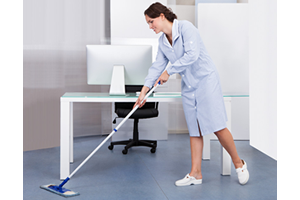At the European level, a few Directives have been given to further develop OSH. Most can be grouped under the Framework Directive 89/391/EEC of 12 June 1989 and its branches. The overall Directive ‘on the acquaintance of measures with support upgrades in the security and soundness of labourers’ obliges bosses to take the important measures to guarantee the wellbeing and strength of labourers in all parts of their work. The arrangements of these orders are sanctioned through public law in every Member State. Article 6.4 is of uncommon interest to the Office Cleaning Slough area, where labourers have a few working environments, for example, the specialist co-op and its different customers: ‘… where a few endeavours share a working environment, the businesses will collaborate in carrying out the wellbeing, wellbeing, and word related cleanliness arrangements and, considering the idea of the exercises, will facilitate their activities in the issue of the assurance and avoidance of occupational dangers and will illuminate each other and their particular labourers or potentially labourers’ agents of these dangers’.
The accompanying sub-orders are likewise significant for the area:

Risky substances: Directive 98/24/EC of 7 April 1998 on the assurance of the wellbeing and security of labourers from the dangers identified with compound specialists at work (fourteenth individual Directive inside the importance of Article 16(1) of Directive 89/391/EEC). Manual taking care of Directive 90/269/EEC of 29 May 1990 on the base wellbeing and security necessities for the manual treatment of burdens where there is a danger especially of back injury to labourers (fourth individual Directive inside the importance of Article 16 (1) of Directive 89/391/EEC).
PPE: Directive 89/656/EEC of 30 November 1989 on the base wellbeing and security prerequisites for the utilization by labourers of individual defensive gear at the work environment (third individual order inside the importance of Article 16 (1) of Directive 89/391/EEC) All the working environment word related security and wellbeing mandates and related public laws in all EU Member States require businesses and labourers to follow general standards of counteraction:
- Keeping away from the hazard
- Assessing changes that can’t be kept away from
- Battling hazards at source
- Adjusting the work to the individual, particularly as respects the plan of the work environment, the decision of work hardware, and the decision of working techniques, with the end goal of mitigating dreary, unduly exhausting, or quick moving work
- Adjusting to specialized advancement
- Supplanting hazardous substances with non-perilous or less risky ones
- Fostering a sound in general counteraction strategy which covers innovation, an association of work, working conditions, social connections, and the workspace
- Giving aggregate defensive estimates need over individual defensive measures
- Giving proper guidelines to workers.
There are additional orders on obtainment that might impact the functioning states of cleaners:
- 2004/17/EC of the European Parliament and of the Council of 31 March 2004 planning the acquirement methods of substances working in the water, energy, transport (the ‘Utilities Directive’)
- 2004/18/EC of the European Parliament and of the Council of 31 March 2004 on the coordination of strategies for the honour of public works gets (the ‘Old style Directive’)
The International Labor Organization (ILO) Convention No. 189 offers explicit assurance to homegrown labourers. It sets down fundamental rights and standards and expects states to take a progression of measures with the end goal of making good work a reality for homegrown specialists.

